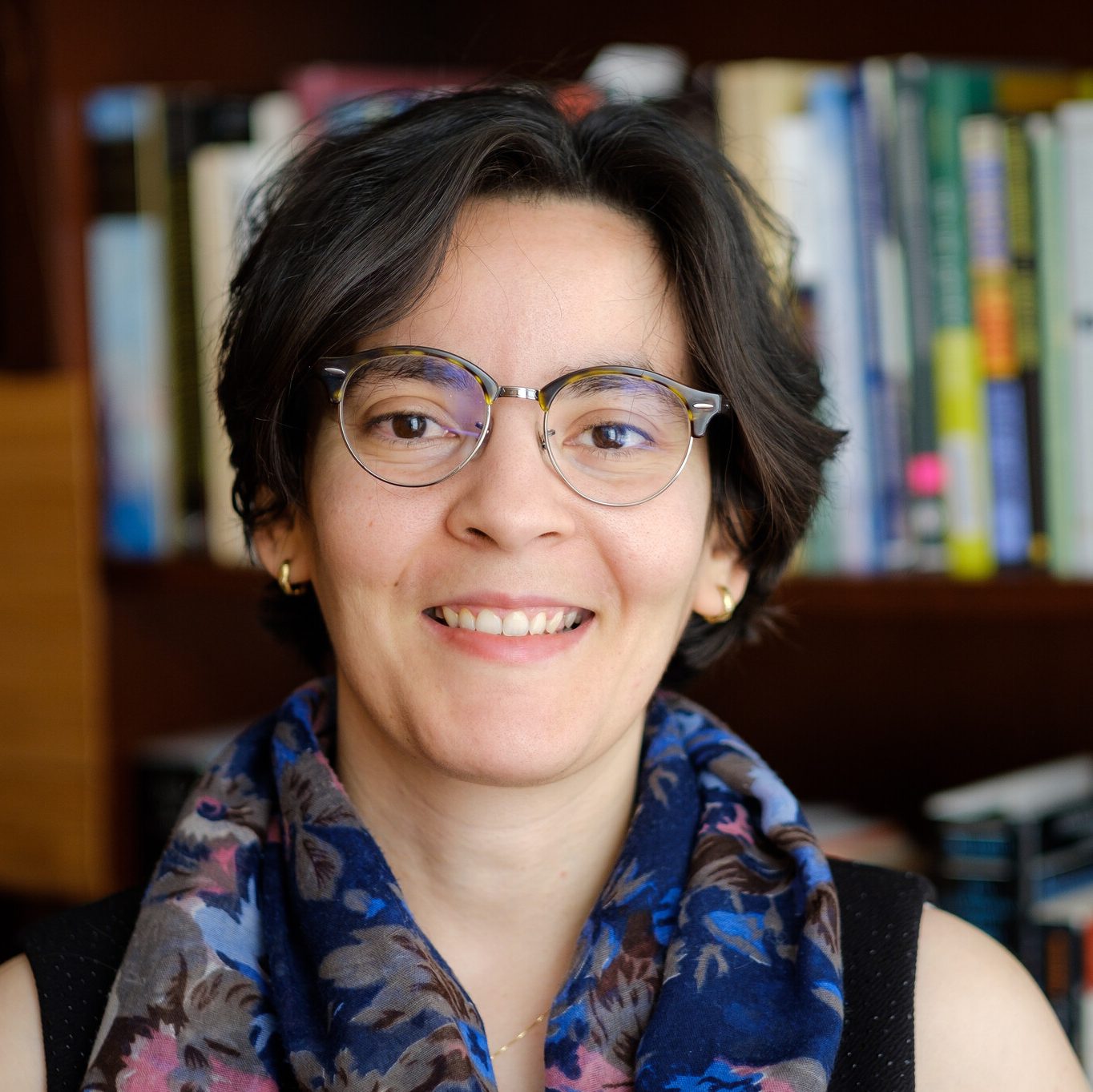Dr. Lina Benabdallah Awarded 2024 Reid-Doyle Prize for Excellence in Teaching
By Erin Marlow, Communications Specialist in the Office of the Dean of the College
When students pose questions in Dr. Lina Benabdallah’s International Politics class, the room often fills with quiet contemplation. Rather than offering an immediate response during a class discussion, Dr. Benabdallah pauses, inviting students to share their voices and consider the topic with additional depth.
Such care for student participation and engagement is a core value of Dr. Benabdallah’s teaching. As demonstrated by the way she structures the class – whether giving students the opportunity to teach a topic of their choosing on Fridays or using digitized representations of the course readings to spark class discussion – Dr. Benabdallah, Associate Professor of Politics and the 2024 winner of the Reid-Doyle Prize for Excellence in Teaching, is deeply invested in her students’ intellectual development.
“I put a lot of effort in my teaching, as do all my colleagues at Wake,” said Dr. Benabdallah. “I value the interactions I have with my students and always leave the class more energized than when I go in. This award solidified my passion for teaching,” she said.
The Reid-Doyle prize, established in 1971 and renamed in 1986, recognizes the generosity of the late Wilbur Doyle, who endowed the prize in honor of his philosophy professor A.C. Reid. The prize honors a tenure strain College faculty member who is still in the early part of their career.
Dr. Benabdallah – who joined the Politics Department in 2017 – blends humor and professionalism in her classroom. “[She] enjoys an excellent rapport with her students, striking a balance between engaging with them and helping them to understand relatively complex material. She is very warm and open,” said Dr. Mark Vail, Worrell Professor of Politics and International Affairs.
Dr. John Dinan, Professor and Chair of the Politics Department, also emphasized Dr. Benabdallah’s ability to elicit student participation with her patience and welcoming persona. “In covering uncomfortable material and facilitating sometimes very difficult and challenging class discussions, Lina works first and foremost to build a high level of trust and a sense of community. Students routinely comment that Lina ‘truly cares’ about them and their opinions,” he said.
A hallmark of her courses involves bringing down big questions of international development to the local community. In doing so, Dr. Benabdallah challenges her students to unlearn some of the misconceptions they may bring to the class, ultimately creating space for a more nuanced, dynamic understanding of issues regarding injustice, inequality, and asymmetrical power relations in the international system. “I am often impressed with the level of maturity and responsibility with which students discuss the role that privilege plays not only in the bigger IR scheme of things but down to much more localized contexts,” she said.
Seeking opportunities to develop her teaching, Dr. Benabdallah received a $3,000 grant from the Associate Dean for Interdisciplinary Programs and Experiential Learning as part of the Mellon Foundation grants to redesign her international development course. With the grant, Dr. Benabdallah and her students will focus on development more locally, in the Winston-Salem community and the Triad. Dr. Benabdallah also received a Character Course Development in the amount of $4,000 to develop a new course focused on Postcolonial International Relations.
Reflecting on the Reid-Doyle Prize, Dr. Benabdallah is filled with gratitude. “I was extremely elated to have received the award,” said Dr. Benabdallah. “It means a lot to me. The certificate is now framed, and it hangs proudly in my office in Kirby Hall.”
Congratulations, Dr. Benabdallah, for being this year’s distinguished recipient of the Reid-Doyle Prize for Excellence in Teaching.

I value the interactions I have with my students and always leave the class more energized than when I go in. This award solidified my passion for teaching.
Dr. Lina Benabdallah

